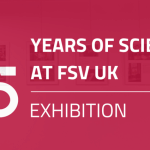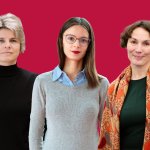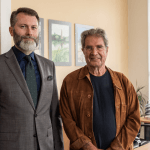Remembering crises: FSV UK as a host of the Annual Meeting of the Memory Studies Association
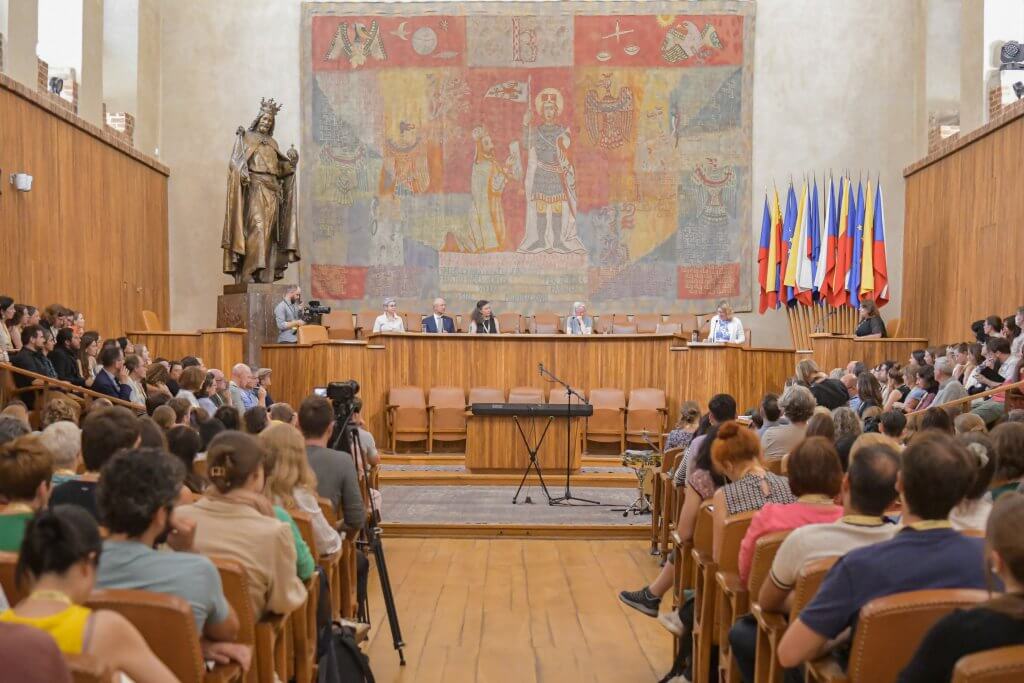
From July 14 to 18, 2025, the Faculty of Social Sciences, Charles University (FSV UK) served as one of the main hosts of the 9th Annual Meeting of the Memory Studies Association (MSA)—a major global platform for scholars in the field of memory studies. Themed “Beyond Crises: Resilience and (In)Stability”, the conference brought over 1,200 academics, artists and activists from nearly 100 countries to Prague to explore how societies remember, respond to, and recover from crises—both past and present. The conference was held under the auspices of Czech Minister of Foreign Affairs Jan Lipavský, Rector of Charles University Prof. Milena Králíčková, and President of the Czech Academy of Sciences Prof. Radomír Pánek.
For the first time in its history, the MSA’s annual meeting took place in the Czech Republic. This year’s program marked several significant anniversaries, including the end of World War II (1945), the end of the Vietnam War (1975), and the Srebrenica genocide (1995).
Scholars from across the globe reflected on these milestones and engaged in over 300 thematic panels, discussing memory, justice, contemporary societal challenges, and the global impact of historical traumas. A key goal of the conference was to encourage multidimensional dialogue about what memory scholars can learn from past crises and how such knowledge might be used to address the ongoing challenges of today’s world.
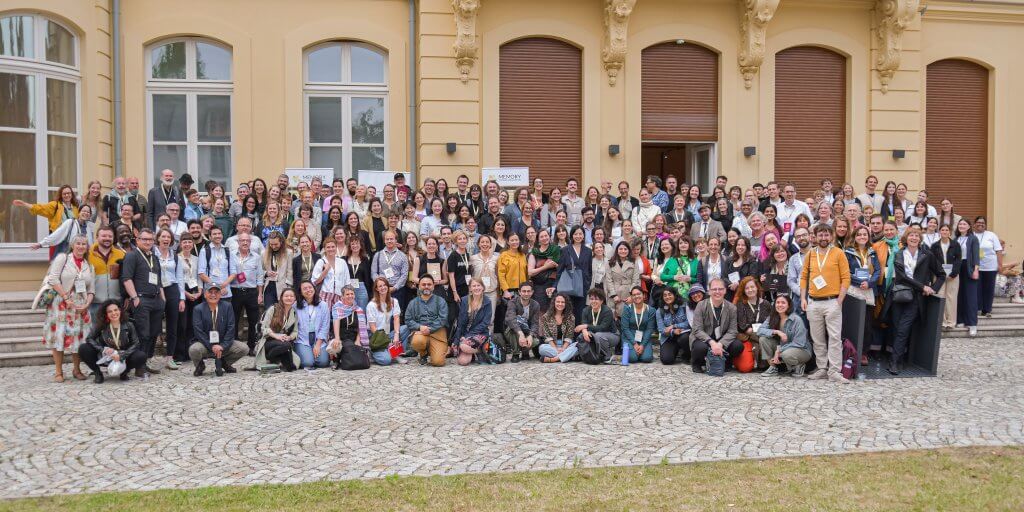
The program featured keynote lectures by two distinguished guests: Professor Astrid Erll, a leading expert in memory studies from Goethe University Frankfurt, and Georgi Gospodinov, an acclaimed Bulgarian writer, poet, and essayist, and recipient of the 2023 International Booker Prize.
In addition to its academic program, the conference included a vibrant cultural program, taking place across eleven venues in Prague, including the Museum of Literature. At Hybernská Campus, the Voices of Memory exhibition showcased international artists exploring themes of heritage, embodiment, and solidarity through diverse artistic media. Meanwhile, the Karolinum hosted the exhibition Beyond Crises: Resilience and (In)Stability, featuring both local and international artists. Independent artist Olina Francová presented an installation on notable Czech women who have often been erased from collective memory.
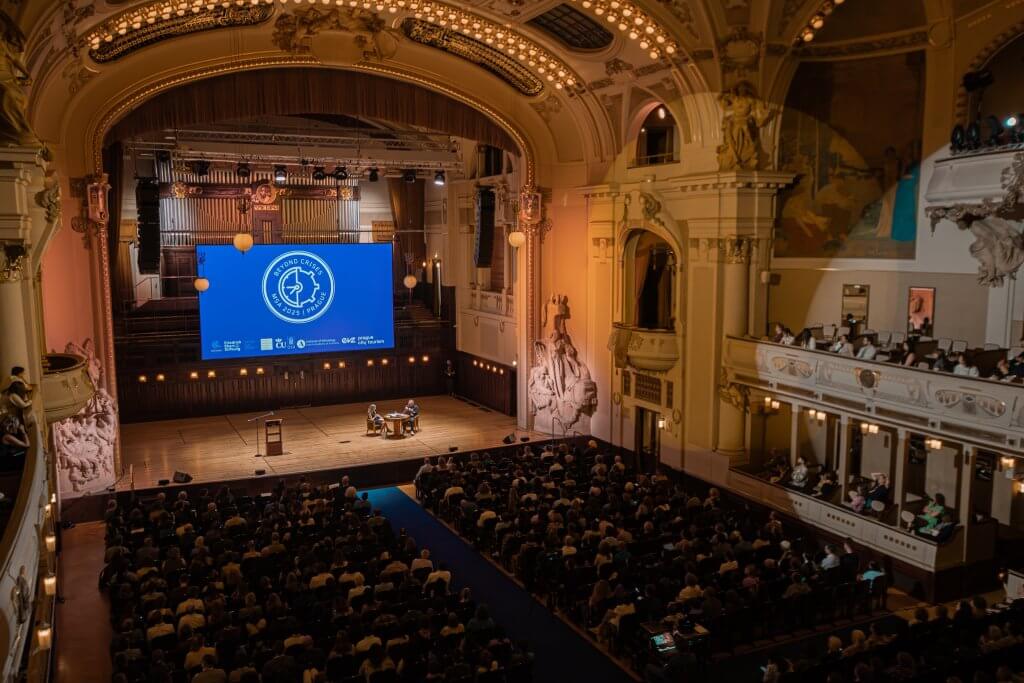
Conference attendees were also invited to participate in guided “memory walks” through Prague, uncovering hidden layers of the city’s history. One walk traced socialist-era monuments in the outskirts of Prague, another on the Vinohrady focused on women’s anti-Nazi resistance during World War II, while a third in Prague 7 explored places linked to Jewish life during the First Czechoslovak Republic and the Second World War.
FSV UK, led by Professor Kateřina Králová from the Institute of International Studies (IMS), was among the conference’s key organizing institutions. Nearly twenty experts from FSV UK, including PhD students, participated in panel discussions.
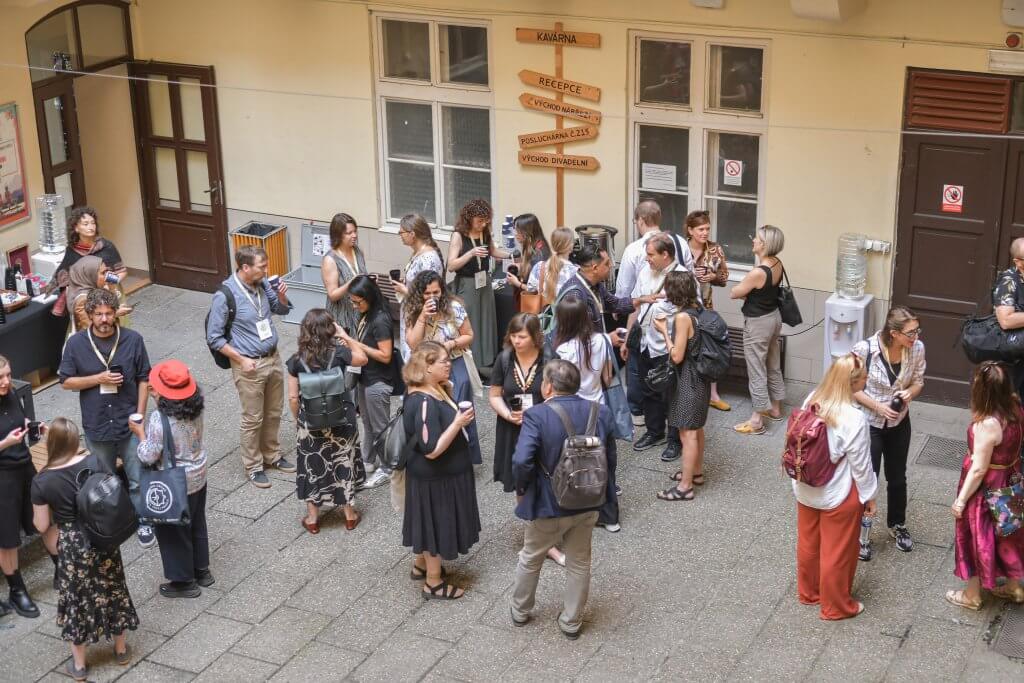
The Institute of International Studies (IMS) had the strongest representation, with contributions from Kryštof Kozák, Ondřej Klípa, Klára Vedlichová, Klára Kosová, Karin Roginer Hofmeister, Maria-Alina Asavei, Valeriya Korablyova, Rose Smith, Kateřina Fuksová, Tereza Juhászová, Alexios Ntetorakis Exarchou, and Lucie Filipová.
The Institute of Political Studies (IPS) was represented by scholars Hana Kubátová and Irena Kalhousová; the Institute of Communication Studies and Journalism (ICSJ) by Irena Reifová and David Klimeš; and the Institute of Sociological Studies (ISS) by Alessandro Testa and David Pergl.
The event also gained coverage in Czech national media. For example, you can listen to an interview in Czech with Professor Kateřina Králová on Czech Radio’s Radiožurnál here.
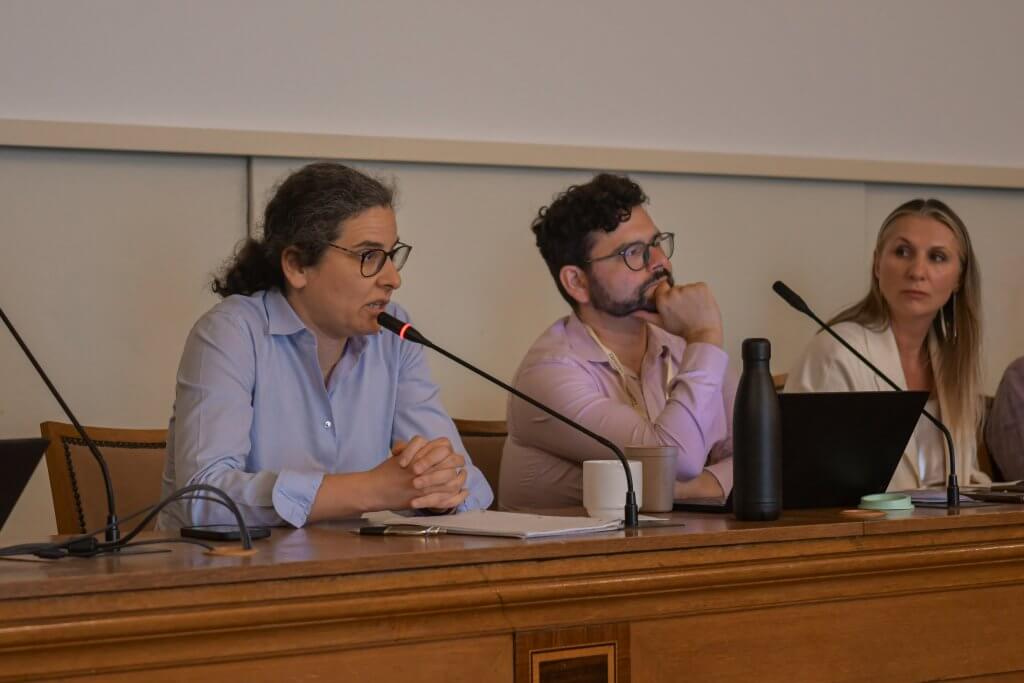
Photo credit: Kristýna Sluková
